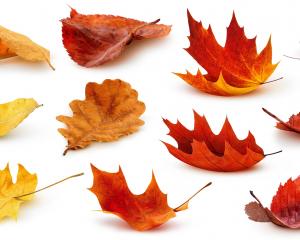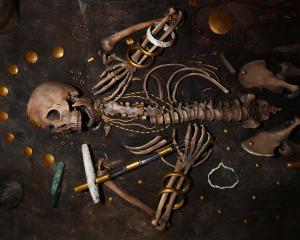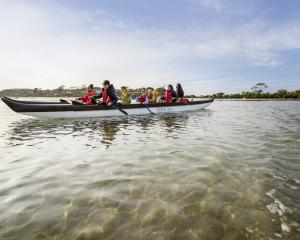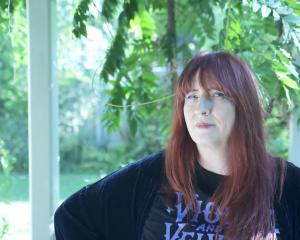
It was the ultimate, public Aussie put-down by none other than the New Zealand architect of transtasman Closer Economic Relations.
In 1980 New Zealand's short in stature but larger-than-life Prime Minister Robert Muldoon met his Australian counterpart, Malcolm Fraser, in Wellington. Neither liked the other. But both agreed their countries should ''co-operate more closely in their own trading relationship''.
Mr Muldoon's reaction to questions about the exodus - delivered with characteristic wry smile and gruff voice - was sharply derogatory of all Australians, laced with barbs for those crossing the Ditch.
''New Zealanders who leave for Australia raise the IQ of both countries,'' he retorted.
Three decades later, much has changed. Meeting a month before the 30th anniversary of the signing of CER, present-day Prime Ministers John Key and Julia Gillard lead countries which have become among the world's most closely integrated economies. But just as much, it seems, has remained the same. Not far below the surface of the smaller nation, a little brother's spite seems to simmer unabated.
We love to discriminate against Australians, psychologist Dr Jackie Hunter says.
The University of Otago lecturer studies the interplay between discrimination, self-esteem, sense of belonging and identity. He has conducted experiments showing New Zealanders, given the chance, deprive Australians of resources and give them unpleasant experiences.
''When given the opportunity to allocate $100 between Australians and New Zealanders, New Zealanders allocated $75.91 to New Zealanders and $24.09 to Australians,'' Dr Hunter said.
Dr Hunter's research also reveals these displays of discrimination gave New Zealanders feelings of increased self-esteem, belonging and social identity. It is empirical evidence for what we instinctively know to be true.
We like to crack derogatory jokes about Aussies. And it makes us feel good. Give it a go. You know you want to.
Q. What is the difference between yoghurt and Australia? A. Yoghurt has some culture.
Hilarious. Did you feel a momentary glow of smugness? Of course. Tell the joke to a friend and no doubt you will also share a brief burst of patriotic pride.
And yet we do this despite deep and wide bonds with Australia.
The two countries share language and cultural traits, as well as similar political, legal and economic institutions. About 480,000 New Zealand-born people live in Australia and about 65,000 Australians live here.
The Anzac spirit forged at Gallipoli in 1915 has endured through theatres of war in Europe, Africa and Southeast Asia. In recent decades it has been exhibited in joint peacekeeping operations in Bougainville, the Solomon Islands and East Timor.
Australia is New Zealand's largest export market, taking about $10.8 billion of our goods each year. And Australians hold investments in New Zealand worth about $91 billion.
It is a relationship Mr Key has described as ''like no other'' and Ms Gillard has called ''family''.
To outsiders, our two countries must look like odd-shaped, South Pacific Siamese twins. One big, brash and brown. The other diminutive, polite and green. But both definitely joined at the hip.
With so much in common, where does this New Zealand prejudice towards Australia spring from? Australians have always thrown a few sheep jokes in our direction. And they like to try to beat us at sports. But there is not a lot at stake in it for them.
They might worry for a moment when we get the edge over them in a trade deal, such as when New Zealand in 2008 became the first developed economy to successfully negotiate a free trade agreement with China. But for the most part they are either prone to forget us in their rush to be part of the Asian Century, or to think of us with some affection.
According to the Lowy Institute - an independent international affairs, think-tank based in Sydney - Australians consistently name New Zealand their most liked foreign country.
For New Zealanders, however, it is all a lot more personal.
At times we welcome their presence, such as when Australian fast bowler Brett Lee popped over for a weekend in January to play for Otago in a twenty/20 game against Canterbury. Or when snow brings up to 100,000 mostly young Australians on skis and snowboards pouring tens of millions of dollars into the New Zealand economy each winter.
But this is against an emotional background that is distinctly darker.
Our litany of wrongs done is well rehearsed and close at hand.
We are forever outraged that Australians claim Timaru-born Phar Lap as a legendary Australian racehorse; that they put the head of Dunedin-born philanthropic ophthalmologist Fred Hollows on a coin celebrating inspirational Australians; that they claim to have invented the pavlova in 1935 when it was listed in New Zealand recipe books as early as 1926; that they include Split Enz off-shoot Crowded House among Australia's top bands; that they used fire blight as a spurious excuse to block imports of our apples for 90 years ...
And then there is the death blow - the never-to-be-forgotten underarm delivery delivered by Australian cricketer Trevor Chappell to prevent New Zealand drawing the third match of the one-day international series in 1981.
We are the aggrieved little brother - discriminating and belittling at every opportunity, constantly comparing to see if we measure up, secretly envious and resentful of the other's perceived strengths and achievements.
And we have been that estranged little brother for a long time.
Australasia once existed, but that was during the 19th century, University of Otago historian Prof Tom Brooking said.
After New Zealand rejected the option to join the Federation of Australia in 1901 it began to ''behave as a typically small country, increasingly self-conscious about its Lilliputian qualities'', Prof Brooking wrote in a chapter contributed to Moving Together or Drifting Apart, a book about New Zealand and Australia's troubled relationship.
For example, New Zealand's World War 1 Prime Minister William Massey and and his coalition deputy Joseph Ward disliked each other but travelled extensively overseas together, earning the transtasman nickname of the Bing Boys, a reference to Australia's first surviving conjoined twins.
The pair's deepest loathing, however, was reserved for the ''boastful if ebullient'' Australian Prime Minister Billy Hughes, Prof Brooking said. Political commentator Dr Bryce Edwards attributes our little-brother syndrome to petty nationalism and a ''failure ... to create an assertive and well-defined sense of national identity''.
''So when [politicians] compare New Zealand to Australia, either in terms of cheeky put-downs of our big brother or as a call to lift the country's performance, this really amounts to just empty politics and platitudes,'' Dr Edwards, who is a University of Otago political studies lecturer, said.
''But what makes our petty nationalistic rivalry so strange is the fact that mostly, our two nations are incredibly similar.''
It is as though we are indeed conjoined twins, but one is a morose dwarf always spoiling for a fight with its larger half.
Which cannot be healthy.
"Big brothers are useful and you can draw on their presence in the wider world,''Dr Skellet said. "But be careful you are not diminished by living in their shadow.''
And that shadow is more a state of mind than a physical or geographical reality, the Dunedin-based author of When Happiness Is Not Enough said.
Australians and New Zealanders have quite distinct national temperaments. We do ourselves a disservice when we constantly try to be like our big brother, he says.
''The Australian psyche is ultra-competitive and achievement-oriented. They like to win and be best and first.
''As Kiwis we are more laid-back. We tend to value our lifestyle and environment. We have a unique quality of life.''
What worries Dr Skellet about our relationship with Australia is that it seems to be ''unrelentingly competitive''.
It is classic little-brother syndrome behaviour and, given their competitive nature, ''might well play into Australian hands''.
Which raises questions about whether the Government's apparent preoccupation with matching Australia is wise or risks only deepening our collective mental malaise.
National came to power in late 2008, saying its vision was to ''close the gap with Australia by 2025''.
That goal got caught up in the Act Party-driven 2025 Taskforce, which produced recommendations some of which Mr Key termed ''extreme''. It was officially dropped by the Government in early 2011.
But the comparing and contrasting has continued.
In August of that year the then Minister of Commerce Simon Power, speaking in Auckland to the Trans-Tasman Business Circle, said the Government wanted New Zealand companies to take on Australians at their own game.
''Aggressive competition is the Australian way,'' Mr Power said. ''New Zealand's forthcoming strategy for Australia - known as NZ Inc - will encourage companies to seek that competitive spirit which Australian companies display.''
And in late January this year, outlining to members of Auckland's North Harbour Club the challenges and opportunities facing New Zealand, Mr Key held up Australia as an example of how to proceed.
''Investment is crucial,'' Mr Key said. ''Why has Australia been doing so well over the last few years? Because there has been massive investment in its economy.''
Rather than focusing on catching up with Australia, Dr Skellet suggests a healthier goal for New Zealand is ''to be the best we can be''.
The way to avoid being sucked into little brother thinking is to ''accept differences, assume equivalence and exude confidence'', he says. ''You don't need to prove yourself. You are who you are.
''Whatever status you find yourself in, you can always play a useful role and a confident role from that position.
''If we give up comparing ourselves with Australia, and instead focus on our positive qualities while working to reach our potential, our status in the eyes of Australia ''would paradoxically rise as a result'', Dr Skellet said.
There are some hopeful signs this sort of thinking has gained, or is getting, a toe-hold.
Prof Alistair Fox, whose expertise includes contemporary New Zealand literature and film, believes although New Zealand envies Australia's economic wealth, there is no sense of inferiority in the arts world.''
New Zealand literature and cinema is distinct to itself,'' Prof Fox, director of the University of Otago's Centre for Research on National Identity, said.
''Sometimes there is even a sense of superiority.''
Since the late 1970s Dunedin-based precision engineering firm DC Ross has been producing components for handbrakes in all Ford Falcon, Holden Commodore and Toyota Camry vehicles manufactured in Australia.
The company's general manager, Peter Deans, says during the past three years there has been a ''quantum shift'' away from a little-brother mentality among New Zealand manufacturers doing business in Australia.
That change has been enabled by a loss of confidence among Australian manufacturers hurt by the global economic crisis, he says.
''There was a `you shall do as we say or we'll go elsewhere' attitude,'' Mr Deans said. ''That's changed. Now there is even discussion about collaborations.''
The decline in Australian manufacturing has forced DC Ross to look elsewhere for opportunities.
It now produces two seating components for Tesla Motors, the United States electric car company co-founded by PayPal's Elon Musk, which produced the first fully electric sports car.
DC Ross also hopes to sign a manufacturing contract with a multinational German-based company in the next few weeks.
This has also helped the company do business in Australia.
''If New Zealand companies can start picking up contracts with other overseas multi-nationals, it adds some stripes to your sleeve when you turn up to do business with Australians,'' Mr Deans said.
A new type of New Zealander is emerging, Z Energy chief executive Mike Bennetts claims.
Before Shell service stations were rebranded last year, Z Energy hired research firm AC Nielsen to survey 17,000 New Zealanders about their lifestyles, values and attitudes.
What emerged was a picture of a new, more confident, more assertive New Zealander, Mr Bennetts said.
''We no longer feel forgotten,'' he said. ''We want to be associated with successful enterprises. We are becoming creative and innovative beyond the No 8 fencing wire mentality. And we want to celebrate success, but like to keep it real and act with humility.
''This way of thinking was probably more pervasive in cities than in rural areas. And it would take a while to infiltrate our relationship with Australia, he believed.
''It is probably more about how we are redefining ourselves in terms of the rest of the world, rather than with our nearest neighbour.''
But Mr Bennetts worries this new attitude is being threatened by tough times.
It takes courage to become more innovative and creative, he says.
''My interpretation is some of the new Kiwiness has been dampened by the global financial crisis because people are finding life difficult.''
You could argue if New Zealand wishes to remain relevant - economically, culturally and trade wise - to the wider world ... then there needs to be an evolution in who we are. Time will show whether we want to go in that direction.''












